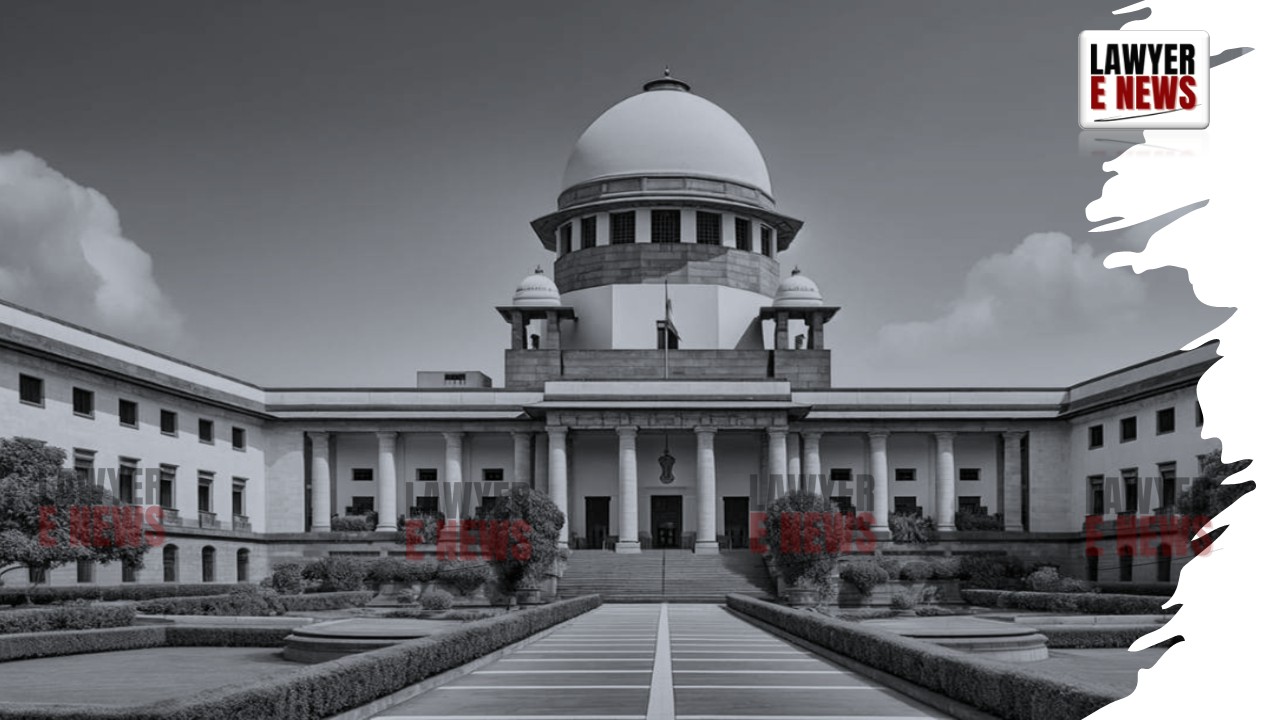-
by Admin
15 February 2026 5:01 PM



The Supreme Court of India, in a significant judgment, has upheld the conviction of a husband under Section 498A of the Indian Penal Code and Section 4 of the Dowry Prohibition Act while reducing his sentence to the period already undergone. The Court, however, imposed a compensation of ₹3,00,000 to be paid to the complainant, acknowledging the harassment she endured. Delivering the ruling, a bench comprising Justice K.V. Viswanathan and Justice S.V.N. Bhatti observed, “The demand for dowry, in any form, is unlawful and condemnable. While the law must act as a deterrent, justice must also consider the passage of time and the circumstances that have unfolded since the incident.”
The case involved a marriage solemnized on March 31, 2006, between the appellant and the complainant. The union lasted only three days before the complainant left her matrimonial home due to persistent demands for additional dowry. The prosecution, based on the testimony of multiple witnesses, established that the appellant and his family had demanded 100 sovereigns of gold as a precondition for continuing the wedding ceremonies. The complainant’s family had initially agreed to provide 60 sovereigns for the bride and 10 for the groom, but on the day of the wedding reception, the appellant’s father insisted that the event would proceed only if 100 sovereigns were given. Witnesses testified that the groom was withdrawn from the reception dais, refusing to participate in further marriage rituals unless the demand was met.
The trial court, relying on the evidence of the complainant, her relatives, and independent witnesses, convicted the appellant under Section 498A IPC and Section 4 of the Dowry Prohibition Act, sentencing him to three years of imprisonment. The appellate court later modified the sentence to two years for Section 498A IPC and one year for the dowry offense, to run concurrently. The High Court, while confirming the conviction, retained this modification. The appellant then approached the Supreme Court.
The Supreme Court, after reviewing the evidence, concluded that the conviction was justified. The Court noted, “The evidence on record unequivocally establishes that the appellant and his family harassed the complainant for additional dowry. The ingredients of Section 498A IPC and Section 4 of the Dowry Prohibition Act are fully satisfied.” However, the Court took into consideration the fact that the incident occurred in 2006 and that both parties had since moved on in life. The complainant had remarried and settled abroad, and the appellant had undergone three months of imprisonment before securing bail. The Court further observed that the litigation had stretched for nearly 19 years.
In modifying the sentence, the Court relied on the precedent set in Samaul Sk. v. State of Jharkhand, where the Supreme Court reduced the sentence of the accused in a dowry-related case to time served while directing payment of monetary compensation. In this case, the appellant had not voluntarily offered compensation, but the Court exercised its discretion in ordering him to pay ₹3,00,000 to the complainant. The Court directed that the amount be deposited with the trial court within four weeks for disbursal to the complainant.
The Court made it clear that failure to deposit the amount within the stipulated time would result in the appeal being treated as dismissed, requiring the appellant to serve the original sentence. The judgment stated, “Justice cannot be blind to the suffering endured by victims of dowry harassment. Compensation is a means of acknowledging the wrong done and providing some measure of relief.”
While the conviction remained intact, the Supreme Court’s decision balanced the need to uphold the law against dowry harassment while recognizing the prolonged legal battle and the changes in the lives of both parties. The ruling reaffirmed that dowry-related offenses are grave and punishable, but also underscored that justice should be tempered with pragmatism where warranted. The case stands as a precedent where courts may consider the passage of time and changed circumstances while ensuring that victims of such offenses receive due compensation for the injustice suffered.
Date of Decision: January 29, 2025
